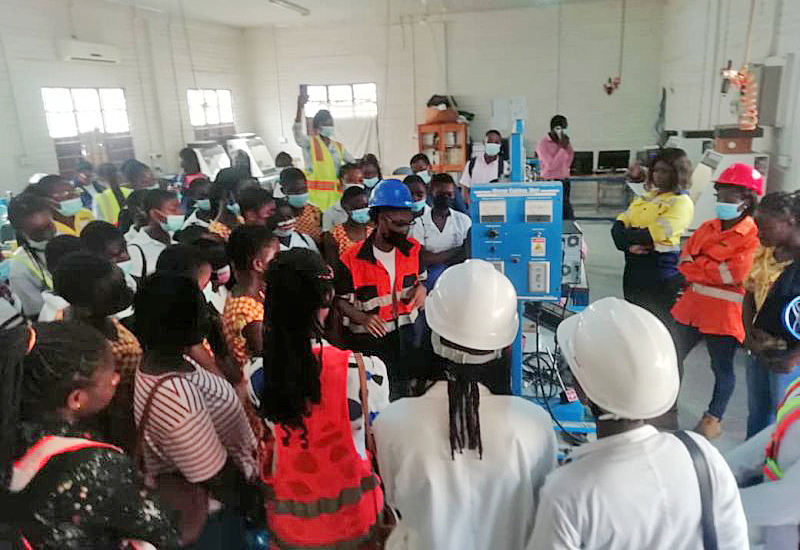The African Women International (AFWI) has organised a field trip to technical based institutions for female students of St.
Ann’s Vocational Institute and Takoradi Technical Institute to create awareness and stimulate interest in non-traditional courses and trades.
The non-traditional trade sector is mostly the science and technology space where women’s participation is less than 20 per cent.
The students visited Send Petroleum Company, the Engineering Department of the Takoradi Technical University and the Takoradi Kokompe artisanal enclave to see how some women who had braced the storm were doing excellently well in the area.
Zen with a haulage wing operates LadyBird fuel tankers with mainly female drivers.
The Engineering Department of the Takoradi Technical University has female students studying engineering courses, while a female sprayer workshop in Kokompe served as an eye-opener to the young girls.

Mrs Araba Dennis, the Executive Director of the AFWI, said the visit formed part of activities under the Innovation in Non-traditional Vocational Education Skills Training (INVEST) Project.
AFWI, with donor support from Global Affairs Canada and in partnership with World University Services of Canada (WUSC) and ABANTU for Development, is implementing the “Enhancing Young Women’s Interest and Access in the non-traditional sectors of TVET through Policy Advocacy in the Sekondi-Takoradi Metropolis.”
The Advocacy Innovation Challenge (AIC) grant received by AFWI is to help to change public perceptions and challenge social norms that constrained women’s access to employment opportunities in non-traditional trades.
The grant would improve the capacity of partner organizations to develop, test and scale innovative gender-responsive advocacy initiatives to address social and gender norms that hindered women’s participation in non-traditional trades to build sustainable pathways to enhance economic empowerment, well-being and inclusive growth for 5,000 urban poor young women in Accra, Kumasi, and Sekondi-Takoradi.
The initiatives will target young women, influencers, local authorities, Technical Vocational Education and Training (TVET) institutions and trainers, media and government agencies.

She noted that jobs within these sectors were characterized by high growth and were well-paying, especially at a time when unemployment was high.
She advised the girls not to be deterred by intimidation, harassment and abuse, wrong perceptions and stereotypes, but venture into the area for potential benefits.
The Executive Director said gender equality in the Sustainable Development Goal was achievable if Ghana invested in women and created a safer working space for them.
AFWI later briefed its stakeholders on the execution of the first phase of the project, successes, challenges, lessons learned and Sustainability plans.
Ashantibiz




